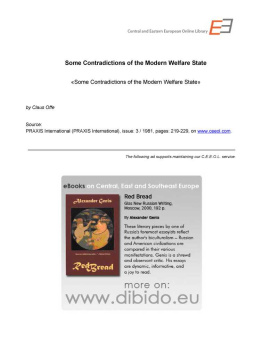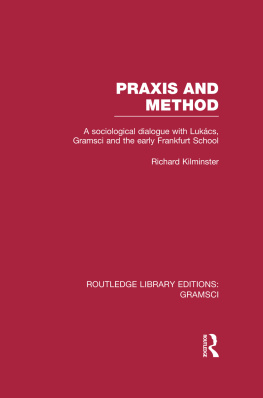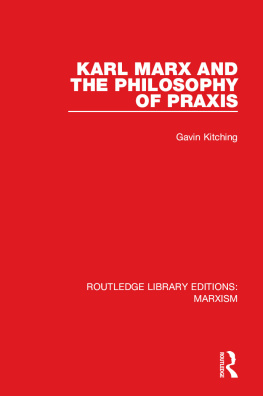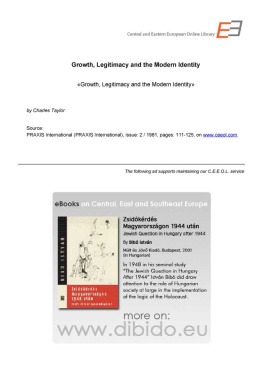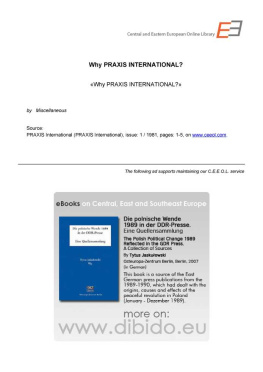SOME CONTRADICTIONS OF THE MODERN WELFARE STATE
Claus Offe
The welfare state has served as the major peace formula of advanced capitalist democracies for the period following World War II. This peace formula basically consists, first, in the explicit obligation of the state apparatus to provide assistance and support (either in money or in kind) to those citizens who suffer from specific needs and risks which are characteristic of the market society; such assistance is provided as a matter of legal claims granted to the citizens. Second, the welfare state is based on the recognition of the formal role of labour unions both in collective bargaining and the formation of public policy. Both of these structural components of the welfare state are considered to limit and mitigate class conflict, to balance the asymmetrical power relation of labour and capital, and thus to overcome the condition of disruptive struggle and contradictions that was the most prominent feature of pre-welfare-state, or liberal, capitalism. In sum, the welfare state has been celebrated throughout the post-war period as the political solution to societal contradictions.
Until quite recently, this seemed to be the converging view of political elites both in countries in which the welfare state is fully developed (e.g., Great Britain, Sweden) as well as in those where it is still an incompletely realized mode!. Political conflict in these latter societies, such as the U.S.A., was not centred on the basic desirability and functional indispensability, but on the pace and modalities, of the implementation of the welfare state model.
This was true, with very minor exceptions, up to the mid-seventies. From that point on we see that in many capitalist societies this established peace formula becomes itself the object of doubts, fundamental critique, and political conflict. It appears that the most widely accepted device of political problem-solving has itself become problematic, and that, at any rate, the unquestioning confidence in the welfare state and its future expansion has rapidly vanished. It is to these doubts and criticisms that I will direct our attention. The point to start with is the observation that the almost universally accepted model of creating a measure of social peace and harmony in European post-war societies has itself become the source of new contradictions and political divisions in the seventies.
Historically, the welfare state has been the combined outcome of a variety of factors which change in composition from country to country. Social Democratic reformism, Christian socialism, enlightened conservative political and economic elites, and large industrial unions were the most important forces which fought for and conceded more and more comprehensive compulsory insurance schemes, labour protection legislation, minimum wages, the expansion of health and education facilities and state-subsidized housing, as well as the recognition of unions as legitimate economic and political representatives of labour. These continuous developments in Western societies were often dramatically
accelerated in a context of intense social conflict and crisis, particularly under war and post-war conditions. The accomplishments which were won under conditions of war and in post-war periods were regularly maintained, and added to them were the innovations that could be introduced in periods of prosperity and growth. In the light of the Keynesian doctrine of economic policy, the welfare state came to be seen not so much as a burden imposed upon the economy, but as a built-in economic and political stabilizer which could help to regenerate the forces of economic growth and prevent the economy from spiraling downward into deep recessions. Thus, a variety of quite heterogeneous ends (ranging from reactionary pre-emptive strikes against the working class movement in the case of Bismarck to socialist reformism in the case of the Weimar Social Democrats; from the social-political consolidation of war and defense economies to the stabilization of the business cycle, etc.) converged on the adoption of identical institutional means which today make up the welfare state. It is exactly its multi-functional character, its ability to serve many conflicting ends and strategies simultaneously, which made the political arrangement of the welfare state so attractive to a broad alliance of heterogeneous forces. But it is equally true that the very diversity of the forces that inaugurated and supported the welfare state could not be accommodated forever within the institutional framework which today appears to come increasingly under attack. The machinery of class compromise has itself become the object of class conflict.
The Attack from the Right
The sharp economic recession of the mid-seventies has given rise to an intellectually and politically equally powerful renaissance of neo-laissez faire and monetarist economic doctrines. These doctrines amount to a fundamental critique of the welfare state that is seen to be the illness of which it pretends to be the cure: rather than effectively harmonizing the conflicts of a market society, it exacerbates them and prevents the forces of social peace and progress (namely, the forces of the market place) from functioning properly and beneficially. This is said to be so for two major reasons. First, the welfare state apparatus imposes a burden of taxation and regulation upon capital which amounts to a disincentive to investment. Second, at the same time, the welfare state grants claims, entitlements, and collective power positions to workers and unions which amount to a disincentive to work, or at least to work as hard and productively as they would be forced to under the reign of unfettered market forces. Taken together, these two effects lead into a dynamic of declining growth and increased expectations, of economic demand overload (known as inflation) as well as political demand overload (ungovernability), which can be satisfied less and less by the available output.
As obvious as the reactionary political uses are that this analysis is usually meant to support or suggest, it may well be that the truth of the analysis itself is greater than the desirability of its practical conclusions. Although the democratic Left has often measured the former by the latter, the two deserve at least a separate evaluation. In my view, at least, the above analysis is not so much false in what it says but in what it remains silent about.
For instance, to take up the first point of the conservative analysis: isnt it true that, under conditions of declining growth rates and vehement competition on domestic and international markets, individual capitalists, at least those firms which do not enjoy the privileges of the monopolistic sector, have many good reasons to consider the prospects for investment and profits bleak, and to blame the welfare state, which imposes social security taxes and a great variety of regulations on them, for reducing profitability even further? Isnt it true that the power position of unions, which, in turn, is based on rights they have won through industrial relations, collective bargaining, and other laws, is great enough to make an increasing number of industrial producers unprofitable or to force them to seek investment opportunities abroad? And isnt it also true that capitalist firms will make investment (and hence employment) decisions according to criteria of expected profitability, and that they consequently will fail to invest as soon as long-term profitability is considered unattractive by them, thus causing an aggregate relative decline in the production output of the economy?
To be sure, no one would deny that there are causes of declining growth rates and capitalists failure to invest which have nothing to do with the impact of the welfare state upon business, but which are rather to be looked for in inherent crisis tendencies of the capitalist economy such as overaccumulation, the business cycle, or uncontrolled technical change. But even if so, it still might make sense to alleviate the hardship imposed upon capital - and therefore, by definition, upon the rest of society, within the confines of a capitalist society - by dropping some of the burdens and constraints of the welfare state. This, of course, is exactly what most proponents of this argument are suggesting as a practical consequence. But after all, so the fairly compelling logic of the argument continues, who benefits from the operation of a welfare state that undermines and eventually destroys the production system upon which it has to rely in order to make its own promises become true? Doesnt a kind of welfare become merely nominal and worthless anyway that punishes capital by a high burden of costs and hence everyone else by inflation, unemployment, or both? In my view, the valuable insight to be gained from the type of analysis I have just described is this: the welfare state, rather than being a separate and autonomous source of well-being which provides incomes and services as a citizen right, is itself highly dependent upon the prosperity and continued profitability of the economy. While being designed to be a cure to some ills of capitalist accumulation, the nature of the illness is such that it may force the patient to refrain from using the cure.

